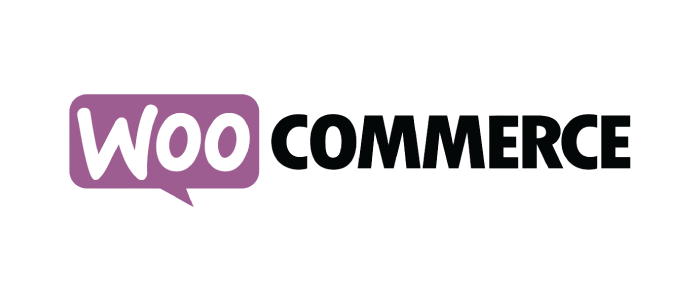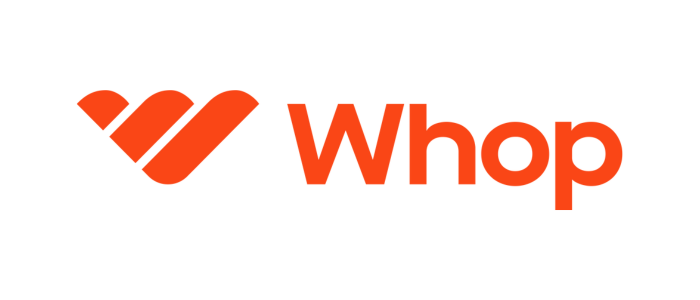E-commerce platforms are the highway to success.
Platforms like Amazon, eBay, and Walmart are dominating the world and generating record-breaking revenue in the process. They are so popular that they don’t even need any introduction.
As per reports from Statista, there were 2.14 billion global buyers online by the end of 2021. Additionally, e-commerce sales accounted for approximately 18% of global sales in 2020. And again in 2021, the world’s largest e-commerce platform, i.e., Amazon, accounted for 50% of the entire retail sales in the United States of America.
In fact, e-commerce platforms are so popular that 93.5% of global internet users have purchased products online. And this means revenue generation in this industry is huge.
For instance, back in the year 2017, global e-commerce revenue was around $4.28 trillion. By the end of 2022, this is expected to hit $5.4 trillion. Amazon is worth more than 1 trillion.
It goes without saying that these statistics have caught the eyes of a lot of businesses as well as start-ups from across the world. And everyone wants to develop their own eCommerce websites like Amazon.
But the real question is, how?
Well, if you want to develop a market-leading eCommerce website but don’t know how to, this blog is for you about eCommerce website platforms.
Best eCommerce Platforms for eCommerce Website Development
eCommerce website development has taken over the market. With examples like Amazon and eBay in the market, everyone wants to develop one of their own and generate skyrocketing revenue.
When you develop a market-leading eCommerce, you want to do it as best as possible and make sure it is a successful one. And that is why you should only use the best platform to develop it. This is the best platform for an e-commerce website.
For this reason, in this blog, we shall be looking at the best eCommerce platforms for clothing, tech, or whatever niche you are looking for.
Platform |
Rating |
| 1) BigCommerce | 4.5 |
| 2) Magento/Adobe Commerce | 3.4 |
| 3) Shopify | 4.0 |
| 4) WooCommerce | 4.0 |
| 5) Wix | 4.1 |
| 6) Shopwired | 4.3 |
| 7) Shift4Shop | 3.9 |
| 8) Weebly | 3.7 |
| 9) Zyro | 4.0 |
| 10) Sellfy | 3.3 |
| 11) Squarespace | 3.4 |
| 12) Whop | 4.2 |
Here, we shall be discussing not one, but 12 best eCommerce platforms that have been tested over time and have proven performance. Make the best platform for e-commerce website development that will increase your business sales.
In addition to a description of the platform itself, we shall also be looking at its pros and cons. With the help of this information, you can find the platform that best fits your business needs. Therefore, with this being said, let’s get right into it, starting with BigCommerce.
1] BigCommerce Development

BigCommerce is one of the most popular and best eCommerce platforms that can offer you.
What makes this eCommerce development platform stand out from the rest is its robustness. BigCommerce comes with an inbuilt, amazing product search engine, which makes it a good choice for larger brands with larger offerings.
However, this platform isn’t favoring any specific niche like many others on the list. Rather, regardless of what your business type is, this is a good option for you.
Speaking of which, BigCommerce has helped many conventional store owners bring their business online while also making a ton of money.
The platform allows users to customize their shop with many tools. Plus, it can be further customized with the help of website developers. While the platform isn’t all that much about code, you can still personalize it enough.
The best part is that it comes with a range of its own free themes from which you can choose.
Advantages
- Flexible and scalable
- Multi-channel selling
- Strong SEO compatibility
- Range of Theme Designs
- abandoned cart feature
Disadvantages
- unstable at times
- May get expensive
- No 1-click Selling/Upsells
2] Magento eCommerce Development – Adobe Commerce

Well, well, if you know anything about the eCommerce website world, you have heard the name Magento.
Magento development has been powering eCommerce websites across the United States of America, helping business owners bring their shops online.
Not just small businesses, but this is a platform that is used by world-class companies like Nike, Procter & Gamble, and Cisco. While Magento is a popular name, it is now known as Adobe Commerce.
Moreover, with the rise of headless Magento, businesses are leveraging its flexibility to create more dynamic and customized online experiences.
Moving on, the platform is highly customizable as coding remains an integral part. While this means you will need to hire dedicated developers, the results are worth it. As such, with high customizability, you also get an amazing set of features and robustness. This is one of the few stores that offers integration with buy now, pay later apps.
For those wondering how much this platform costs, it is primarily free. However, if you want to use it as an enterprise solution, i.e., on a larger level, you need to pay an amount. Speaking of cost, there is no denying that it is one of the most expensive out there.
But for the money you are paying, you get a stable, fast, and amazing eCommerce website.
Advantages
- rich feature set
- Strong SEO compatibility
- 1-Click selling
- Large user base
- Huge community
- Customizability
Disadvantages
- Costly themes.
- Slow
- Requires Development Skills
3] Shopify – eCommerce Platforms for Start-Ups

When it comes to selling, there is no one better than Shopify. And it is also one of the best eCommerce platforms for small businesses.
It is easy to set up an online store on Shopify, as the platform offers a simple and interactive interface. This has resulted in millions of stores on the platform.
Again, if you are a larger business, this is not a good choice. Instead, you should go with BigCommerce. Shopify is for small businesses that want to reach a wider audience.
Moving on, another amazing advantage this eCommerce platform offers is that if you use Facebook Ads or Instagram marketing, this is the best choice you can make.
And recently, the concept of Dropshipping has been popular. Shopify is one of the few platforms that fully supports it, making it the best eCommerce platform for Dropshipping.
When compared to our previous pick, i.e., BigCommerce, Shopify leads in the post-purchase area. Nevertheless, it is much simpler than other platforms on the list and makes setting up your first online shop that much easier and more fun. This is the best e-commerce platform for developers.
Advantages
- Light-fast platform
- Easy to set up
- Range of certified partners
- 1-Click selling
- Multiple channel selling
- Social selling
Disadvantages
- Poor SEO compatibility
- Uniform checkout process
- Need a developer for advanced features
4] WooCommerce

WooCommerce ranks among the top eCommerce platforms for startups. Thus, it is often compared to other platforms like BigCommerce.
But when it comes to running an online store, WooCommerce is far better than any other we have discussed so far.
WooCommerce is a rather different one as it is a part of WordPress, where it can be used to convert any website into an eCommerce site. And since WordPress is in the picture, there is no end to the extensions available. With WooCommerce extensions like the B2B request a quote plugin and the currency converter plugin, you can make your online store stand out and attract customers from a wider audience.
You can find many options for integrating payment gateways, social media, email marketing, 1-click selling, shipping, and more. This is why it is known as the best eCommerce Platform for Small business UK people can get their hands on.
What makes it even better is the ease of setting it up. And it is free for everyone to use. This is quite an advantage for beginners over other platforms.
Therefore, if you are developing an eCommerce website of your own, this is a solution that you have to consider.
Advantages
- Best SEO compatibility
- 1 Click selling app available
- WordPress Experts Readily Available
- Customizable
- Range of integration options
Disadvantages
- Good hosting can be pricey
- No virtual support
5] Wix

While Wix hasn’t been around for a very long time, all of us can agree that this eCommerce platform has made a name for itself in a small time.
As a no-code eCommerce development platform, it wasn’t introduced until after 2017. And even when it was launched in the market, it wasn’t all that great at the start.
However, over the years, they listened to the critics and improved their platform. And now, this is one of the best options on this eCommerce platform list.
This platform mainly focuses on individual business owners and smaller eCommerce stores. Since it is a no-code platform, creating a Wix website is more than easy with drag and drop functionality.
While this means limited customization, every drawback fades away in front of the range of tools it offers.
One of the best plus points of the platform is that it has amazing SEO compatibility. This makes marketing your website all the easier. Considering the fact that the majority of other platforms don’t have this functionality, makes it that much more attractive.
Advantages
- Range of free themes.
- Easy setup
- On-page support
Disadvantages
- Low security
- No automation
- Fewer advanced features
- Rigid design
6] Shopwired

ShopWired has been gaining some traction in recent times. It is available throughout the world. And when it comes to features and performance, there are only a few other eCommerce stores that can match it.
If you have used Shopify or BigCommerce in the past, this platform is similar. It has a similar feature set, and it is also quite easy to work with. This is what makes it one of the best on the online shopping platform list.
It comes with various plans to which you can subscribe. However, features like 1-click upsell, digital products, personalized products, product export, import, etc., are common throughout them.
Some of the more advanced features, like abandoned cart recovery and ratings and reviews, require adding on, but they are free nonetheless.
But what makes it stand out from the rest is its unmatched performance in the B2B area. It comes embedded with features like creating trade accounts, credit accounts, bulk discounts, and a quote request system.
Advantages
- High speed
- Easy to set up
- Best option for B2B
- Custom theme design
Disadvantages
- Average SEO performance
- No Amazon compatibility
7] Shift4Shop

Before you go running to any eCommerce app development company, let us introduce another promising eCommerce platform.
Shift4Shop is no stranger to the eCommerce world, as it has been around since 2001, which makes it two decades old. Earlier, it was known as 3dcart, and it served more than 22,000 online stores.
Moreover, it does come with some very unique features, including unlimited storage and no transaction fees. And the best part is, it doesn’t end here; it also allows the use of POS along with multi-channel selling.
This makes everything that much better for the store runner as they don’t have to pay extra for everything.
Now, it isn’t as big as other eCommerce platforms on the list. Why? Well, the answer is simple: this isn’t a beginner-friendly platform.
This is more of a business-minded platform that is for a more experienced part of the community. Nevertheless, it is one of the best out there.
Advantages
- Best SaaS software Development solution
- Good support for integration
- Business user management tools like email, QuickBooks, inventory, etc.
Disadvantages
- Aged template
- Poor customer support
- Complex
8] Weebly

Weebly is yet another market-leading eCommerce website development platform. Owned by one of America’s best eWallet and Fintech companies, the Square, you know this has to be good.
As one might have guessed, all the eCommerce websites developed on this platform are integrated with their parent company’s point of sales or POS software, which makes the shopping experience for the users all the smoother.
Moreover, you won’t need a developer to help you with it, as you can create your own store by dragging and dropping components to customize the website.
Some of the features of Weebly that stand out are customizable email templates, product research, gift cards, and abandoned cart recovery.
There are some drawbacks as well, as it doesn’t offer good support for SEO and lacks other major features. Nevertheless, it is available for you to consider. And you might as well give it a go if it fits your business needs.
Advantages:
- user-friendly interface.
- online and offline selling features.
- Customize email templates.
- Abandoned cart recovery.
- Accessible through phone
Disadvantages
- No advanced eCommerce features
- Limited customization and extension tools
9] Zyro

Zyro is an example of an eCommerce platform that doesn’t hurt your pocket.
Being a budget-friendly online store maker, it is designed for small businesses who doesn’t have that much to spare.
Haven’t heard the name before, well, this is because it is a rather new entry. But a name that you must have heard is Hostinger, the partner company of this platform.
Now, there is one thing that makes Zyro stand out: it allows you to use AI development solutions for better results.
Among many other things, you can create logos, favicons, edit background images, create business names along with slogans, and maintain blogs, post content, and so on.
Moving on, like many other ones on the list, you can edit or personalize your store with the help of a drag-and-drop builder. It is an easy-to-use, promising platform that offers different pricing plans that you can explore for yourself.
Advantages
- Unlimited storage and bandwidth
- AI technology integration
- Marketing tool integrations
Disadvantages
- Poor SEO performance
10] Sellfy

Sellfy has been around for more than a decade now. Since it solely focuses on selling digital products, it is the best e-commerce platform for digital products that you can find on the web.
Much like many other platforms on the list, it is easy to set up, easy to use, and offers considerable customization.
Speaking of setting up, there are three ways you can get started. For instance, you can connect this platform to your existing website, converting it into an e-commerce platform. You can attach the store itself to a domain name or develop it from scratch.
This is a great platform that is totally free of cost. You should give it a go if budget is an issue.
Advantages
- Free forever plan
- Wix integration
- online selling options
- No transaction fees
- Email marketing
Disadvantages
- Poor SEO
- Limited payment gateway options
- third-party integrations via Zapier
11] Squarespace

This platform has been around for a better part of 2 decades.
Known for its amazing templates and highly level content, Squarespace is a platform that every eCommerce developer loves.
One of the most unique offerings of this platform is the print-on-demand eCommerce business model. This saves a lot of money. So, considering the fact that the prices are also quite affordable, this is a rather pocket-friendly solution.
But don’t forget that you have to pay 3% of the transaction fees.
The platform itself is very flexible as it offers you advanced features like abandoned cart auto recovery, selling subscriptions and gift cards, and giving flexible discounts. But these are limited to the top packages only.
Advantages
- Easy To Set Up
- Simple Stores
- Range of Designs
- SEO tools
- Integrates with ShipStation and ShipBob
Disadvantages
- No dropshipping
- No marketing automation integration
- No Amazon integration

12] Whop

Whop has quickly become a favorite for selling digital products, especially online courses, memberships, and downloadable assets, while keeping your community (chat, forums, livestreams) in the same place. Much like other platforms on the list, it’s easy to set up, simple to manage, and offers sensible customization without code.
Getting started is flexible, too. You can:
- Connect Whop checkout to an existing website or landing page
- Launch a hosted Whop storefront and map it to your own domain
- List your offers on the Whop marketplace for extra discovery.
Unlike many course tools, Whop includes a growing suite of Apps built for course businesses: a Courses app (modules/lessons, drip content), Forum and Livestream apps for student engagement, and Quiz/assessment apps for knowledge checks—plus extras like coupons, affiliates, and integrations. It also ships with a full-featured mobile app and a streamlined creator dashboard to make launching faster.
Pricing
Whop has no monthly subscription—it’s pay-as-you-go. You pay a standard processing fee per successful transaction.
Advantages
- No monthly fee (pay-as-you-go)
- Built-in Apps for courses, quizzes, forums, and livestreams
- Community + commerce in one place
- Easy setup with a hosted store or embed on your site
- Marketplace exposure for additional traffic
- Mobile app and modern creator dashboard
- Coupons, affiliates, and third-party integrations
Disadvantages
- Limited Customization: Some platforms offer more advanced branding and community features
- Focus on digital goods rather than physical products
Conclusion
E-commerce platforms have taken over the market, and while doing so, they have generated billions of dollars, increasing the industry’s worth in trillions.
Consider the fact that businesses have lost more than $756 billion due to bad eCommerce personalization, which speaks volumes about why you should only work with the best.
Now, if you want a piece of this cake and want to develop a market-leading eCommerce website, it is highly recommended that you consult an eCommerce web development company that will help you with the same.
So, hire web developers who can convert your idea into reality and a revenue-generating website today.
FAQs
Some of the best eCommerce platforms are, as mentioned below:
- Sellfy
- Zyro
- Shift4Shop
- WooCommerce
- Shopify – eCommerce Platforms for Startups
WooCommerce and Shopify are two of the fastest-growing platforms for eCommerce, which help you develop your own eCommerce website within minutes.
However, if you want to create a more personalized eCommerce store that represents your business philosophy, you should go with custom website development services.
If you want to hire nothing but the best eCommerce developers with years’ worth of experience, you have come to the right place.
Nimble AppGenie has been developing, deploying, and maintaining market-leading eCommerce websites for years. We have more than 700 delivered projects with 100% client satisfaction.

Niketan Sharma, CTO, Nimble AppGenie, is a tech enthusiast with more than a decade of experience in delivering high-value solutions that allow a brand to penetrate the market easily. With a strong hold on mobile app development, he is actively working to help businesses identify the potential of digital transformation by sharing insightful statistics, guides & blogs.
Table of Contents





No Comments
Comments are closed.